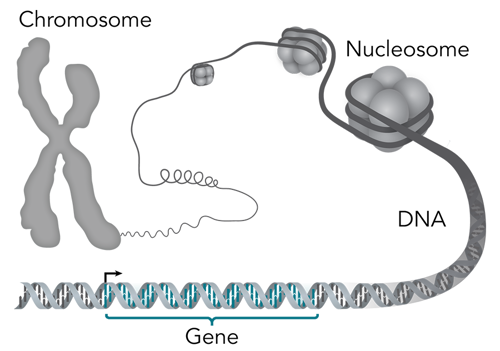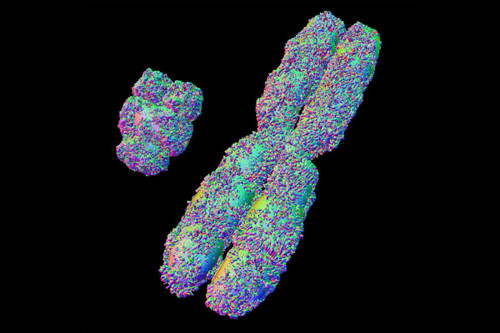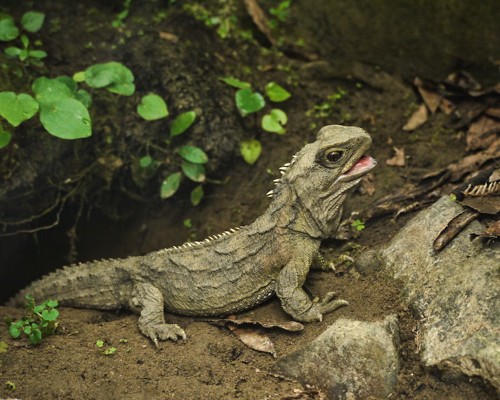
Do boys have different genes than girls?
July 10, 2008

- Related Topics:
- DNA basics,
- Developmental biology,
- Genetic sex,
- Y chromosome,
- Chromosomes
A middle school student from California asks:
"Do boys have different genes than girls?"
Editor’s Note: This article uses the word “male” to mean a child who was assigned male at birth, and “female” to mean a child who was assigned female at birth. However it is important to note that someone’s gender identity may not align with their physical features.
Yes they do. But the number of different genes is very small.
Humans have over 21,000 different genes. Boys have around 80 genes that girls don't have.1 These genes are critical for turning a fertilized human egg into a boy, or a male.
This isn't the only difference between males and females, though. They also use many of the other 21,000 or so genes they share in different ways. It is this combination of extra genes and how we use some of the rest of our genes that makes males different from females.

Differences Usually Don't Mean Different Genes
Of course not all boys look alike (nor for that matter do all girls). And yet everyone of the same biological sex has pretty much the same genes. So why does each boy look different from all other boys? Because he has different versions of the same genes.
For example, because my eyes are brown and yours are blue, it doesn't mean we have different genes. We both have the genes that give our eyes color. But, I have a brown version of an eye color gene and you have a blue version of the same gene.
The differences between males and females are a different story though. A big reason why they are different comes from the extra 80 male genes that I talked about earlier. These genes are found on an extra chromosome that only boys have, the Y chromosome.
The most important of these genes is called the SRY gene.2 It's got a weird name so let's just call it the "male gene".
This gene is responsible for making a male different from a female. So, if you have this gene, you usually become male (a boy). And if you don't, you usually become female (a girl).
The "male gene" turns a fertilized human egg into a male by causing the development of testes.2 These organs make a lot of the hormone testosterone. It is the high levels of this chemical that then makes a person male.
Testosterone affects how genes are used. It will cause some genes to be turned on and others to be turned off. It will also cause some genes to be turned up and others turned down.3

These differences in how genes are used prevent the formation of breasts, and cause growth of facial hair, change in voice, and other characteristics typical of boys and men.2 (A different hormone, estrogen, leads to more female characteristics.)
What do you think would happen if someone didn't have a Y chromosome? Well, you have learned that it contains genes that make a person male. So someone born without a Y chromosome will typically be female.2
Now, what do you think would happen if a person has the Y chromosome? The person will typically be born male.
But not always! As with everything in biology, there are plenty of exceptions to this.

When Things Happen Differently
It turns out that there are a few rare cases where the whole Y chromosome or the single "male gene" are either absent or present in a person by mistake. Let's see a few examples of what happens when things don't go the usual way.
What do you think would happen if someone does NOT have a Y chromosome BUT does have the "male gene" in another chromosome? It turns out that this person would likely be born male. Though since they would not have the other Y chromosome genes, they might have underdeveloped testes and be unable to have children.4
Now, what do you think would happen if a person HAS a Y chromosome BUT the "male gene" is missing or turned off? Think about the answer to the previous question and you will see that this person will usually be born female. However, this person will probably not show typical signs of female development, like breast growth.5
This is mainly because a girl is more than just a person without the Y chromosome (or without the "male gene"). Two copies of the X chromosome are needed for a girl to develop in the usual way.
Where Did Sex Chromosomes Come From?
Strong evidence suggests that the X and Y chromosomes came from an identical pair of ancient chromosomes.6 Eventually, one of the genes in one of these chromosomes evolved (changed) and became the "male gene."7
As time went on, the chromosome with the "male gene" began to shed lots of its genes. It also accumulated new versions of existing genes.7,8 At this point, it became the Y chromosome we know today. The remaining chromosome is what we now call the X chromosome.8
When did all of this happen? Scientists believe that the Y chromosome found in humans and other mammals originated around 250 million years ago!8 We believe this to be true because species that are very similar to us such as mice and monkeys have the "male gene" just like humans while older ancestors such as birds do not.6
If we think about it, this means that our ancient ancestors might not have had different sex chromosomes. They might have determined male/female with some other method.
Perhaps they did what some species that lack sex chromosomes do today. For example, reptiles such as alligators and turtles develop into males or females based on the temperature in which the eggs hatch.9

There are animals such as certain coral reef fish that actually change sex throughout their lifespan.10 Other organisms such as certain worms have both male and female reproductive organs.11
Now you know that boys and girls have a few different genes and that they are responsible for some of the differences between us. However, we are much more similar in terms of our genetics than we are different!
Read More:
- Ensembl Project: Detailed Map of the Y Chromosome
- National Center for Biotechnology Information: Human Genome Resources

Author: Jose Morillo
When this answer was published in 2008, Jose was a Ph.D. candidate in the Department of Developmental Biology, studying epigenetics of stem cell identity and function in Margaret Fuller's laboratory. Jose wrote this answer while participating in the Stanford at The Tech program.
 Skip Navigation
Skip Navigation
